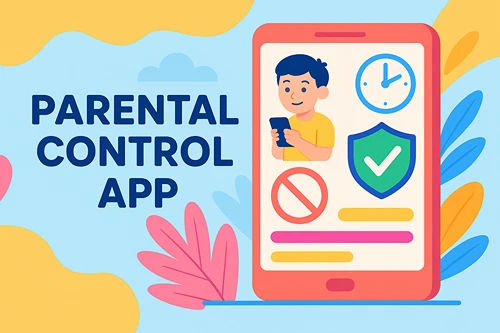Breaking the Cycle: How to Get Your Kids to Listen Without Yelling
Parenting can be one of the most fulfilling yet challenging journeys in life. Many parents struggle with effective ways to communicate with their children, often finding themselves resorting to yelling out of frustration. However, research and expert advice suggest that parenting without yelling is not only possible but also healthier for both parents and kids.
Let’s explore how to get your kid to listen without yelling, threats, or stress.
Understanding Why Kids Don’t Listen
Before addressing how to get kids to listen without threats, it’s important to understand why they might not listen in the first place. Children often ignore directions for several reasons:
- They don’t fully understand the instructions.
- They are overwhelmed or distracted.
- They are seeking independence or testing boundaries.
As parents, we must identify these reasons and address them calmly rather than resorting to shouting. Recognizing these underlying causes sets the stage for strategic parenting no yelling techniques.
The Harmful Effects of Yelling
Yelling can have a long-term impact on a child’s mental and emotional well-being. Studies show that yelling instills fear and can damage the parent-child relationship. This approach often undermines the parent’s authority, making it harder to achieve compliance in the future. By embracing no yelling parenting, we can nurture trust and mutual respect.
How to Get Your Kid to Listen Without Yelling
1. Use Positive Communication
Children respond better to positivity than criticism. Instead of focusing on what your child is doing wrong, highlight what they are doing right. For example, rather than yelling, “Stop making a mess!” try saying, “Let’s clean this up together!” Positive reinforcement encourages cooperation.
2. Establish Clear Expectations
Children thrive on structure and clarity. By setting clear expectations, you can minimize misunderstandings. Make sure instructions are simple and age-appropriate. For instance, instead of vague commands like “Behave yourself,” be specific: “Please keep your voice down and stay seated.”
3. Practice Active Listening
To teach children the importance of listening, parents must model the behavior themselves. Make eye contact, repeat back what your child says, and show empathy. Active listening fosters a sense of mutual respect and demonstrates that you value their thoughts and feelings.
4. Stay Calm and Composed
Staying calm during tense situations is a cornerstone of parenting without yelling. Taking deep breaths, counting to ten, or stepping away for a moment can help diffuse your own frustration. Remaining composed allows you to respond thoughtfully rather than react impulsively.
Strategies for Parenting Without Yelling
The parenting leader no yelling challenge encourages parents to adopt methods that prioritize connection and collaboration over confrontation. Here are some strategies that align with this approach:
1. Create a Connection
Building a strong emotional connection with your child is essential for no yelling parenting. Spend quality time together, engage in their interests, and show them unconditional love. When children feel connected, they are more likely to listen and cooperate.
2. Use Logical Consequences
Instead of threats or punishments, implement logical consequences. For example, if your child refuses to pick up their toys, explain that they won’t be able to play with them until they are put away. Logical consequences help children understand the impact of their actions.
3. Empower with Choices
Giving children choices empowers them and reduces resistance. For instance, ask, “Would you like to brush your teeth before or after reading a story?” This strategy gives them a sense of control while still ensuring that tasks are completed.
4. Be Consistent
Consistency is key in how to be a better parent without yelling. Children need to know that rules and boundaries remain the same regardless of the situation. Inconsistencies can confuse them and lead to defiance.
Tools and Resources for No Yelling Parenting
For parents seeking guidance, resources like the parenting without yelling book and no yelling parenting book provide valuable insights and practical tips. These books often feature case studies, exercises, and real-life scenarios that help parents implement effective techniques.
Additionally, participating in a no yelling parenting challenge can be a transformative experience. These challenges, often led by parenting coaches, focus on building emotional intelligence, improving communication, and fostering a peaceful home environment.
Overcoming Challenges in Parenting Without Yelling
Transitioning to a no yelling parenting approach may seem daunting at first. Parents must unlearn old habits and develop new skills, which takes time and patience. Here are some tips for overcoming common challenges:
1. Seek Support
Join parenting groups or workshops focused on strategic parenting no yelling. Sharing experiences and learning from others can provide valuable encouragement and practical advice.
2. Practice Self-Care
Parenting can be emotionally draining, making it essential to prioritize self-care. Regular exercise, healthy eating, and hobbies can help you maintain emotional balance and respond calmly in challenging situations. You will also be better equipped to model calming strategies to your children.
3. Celebrate Progress
Acknowledge your efforts and celebrate small victories along the way. Positive reinforcement isn’t just for kids—it works for parents, too! Recognizing your progress motivates you to stay committed to the process.
Conclusion
Breaking the cycle of yelling is a journey that requires commitment, patience, and self-awareness. By embracing parenting without yelling, you can create a nurturing environment that encourages respect, communication, and understanding. Whether through books, challenges, or strategic approaches, the tools for transformation are within your reach.
Parenting is not about perfection but progress. Every small step you take toward no yelling parenting will strengthen your relationship with your child and foster a positive, cooperative dynamic. With time and effort, you’ll discover the joy of seeing your kids listen—not out of fear, but out of mutual respect and love.





